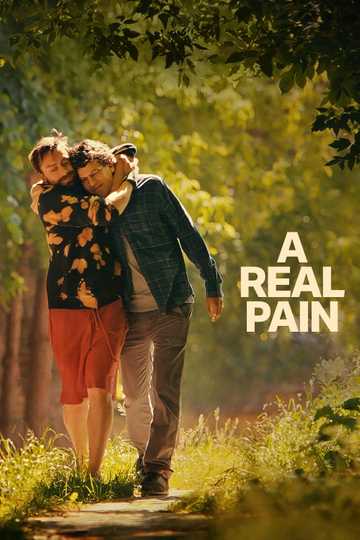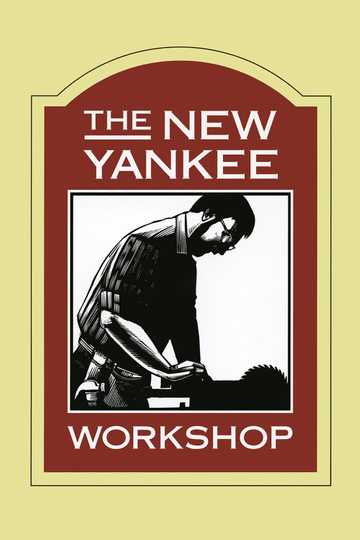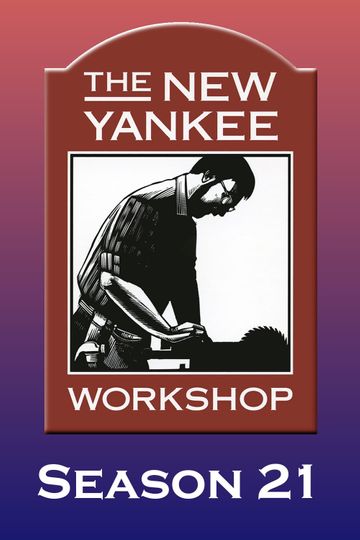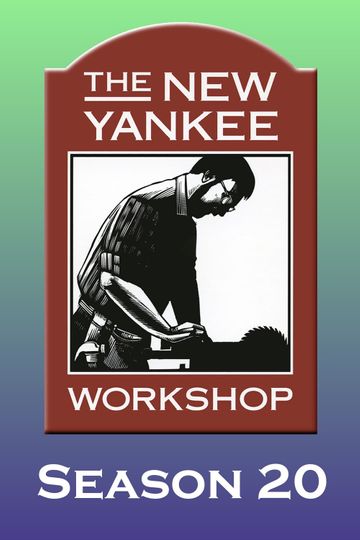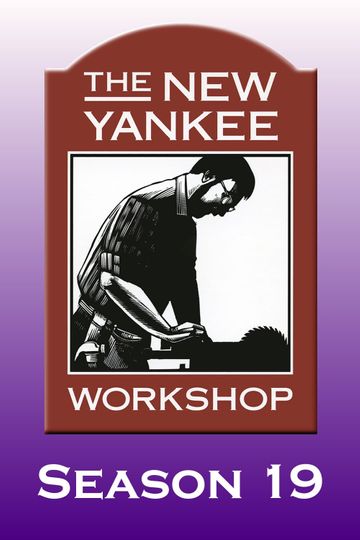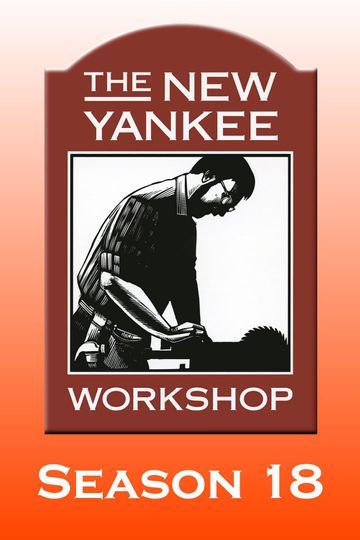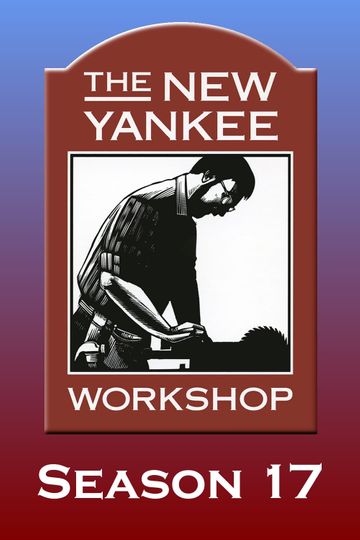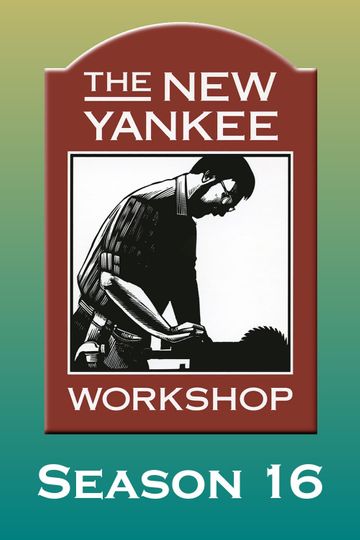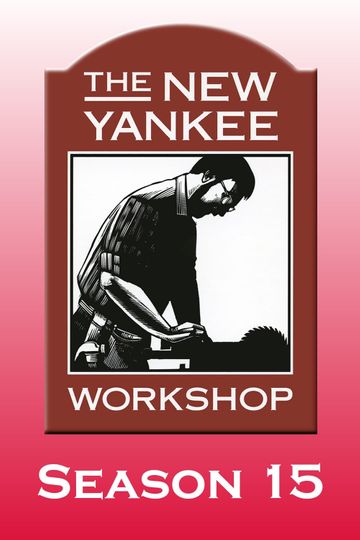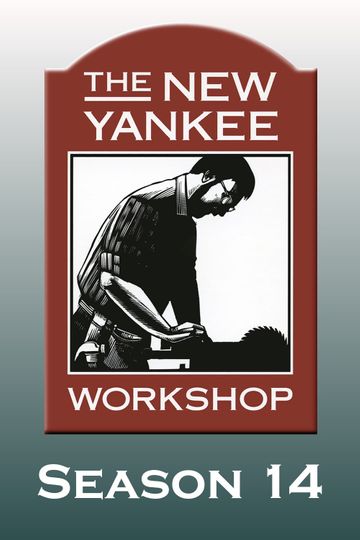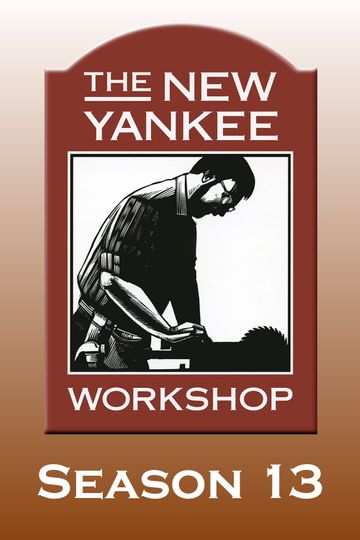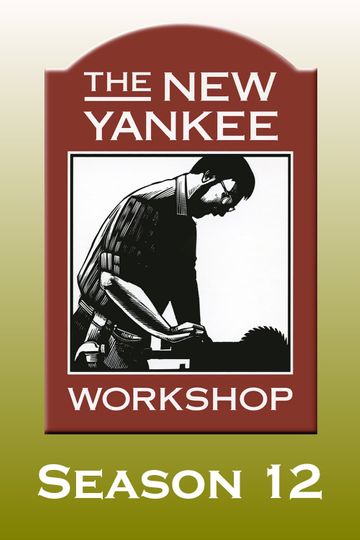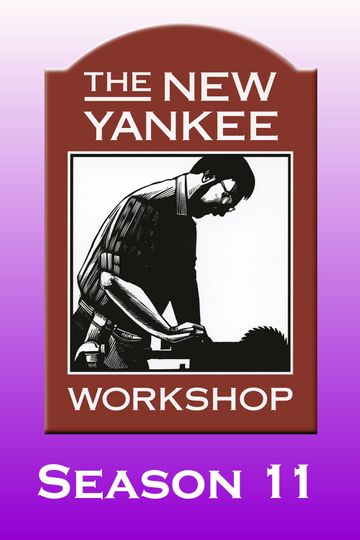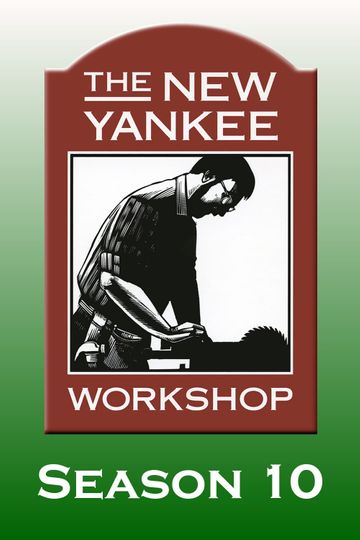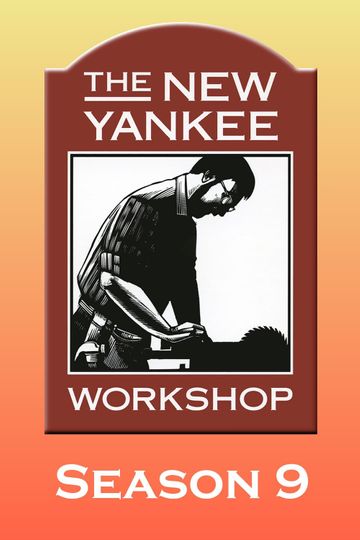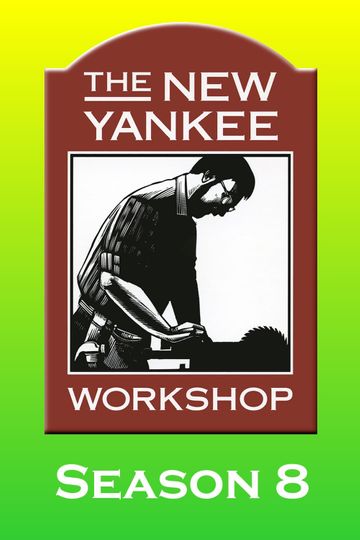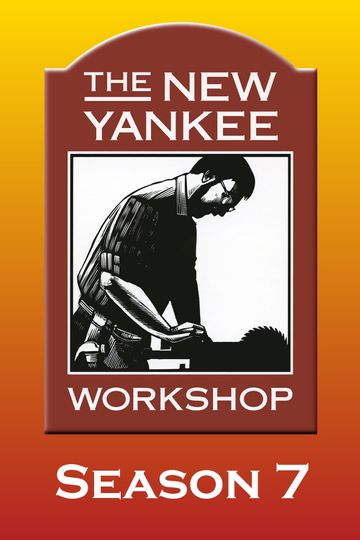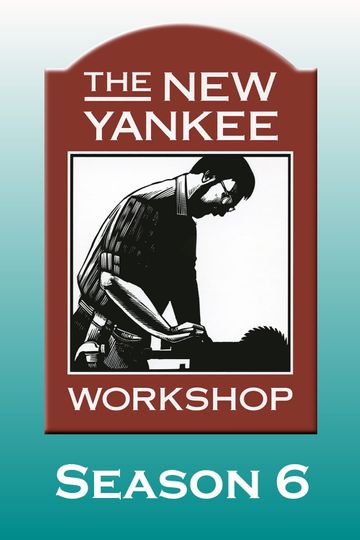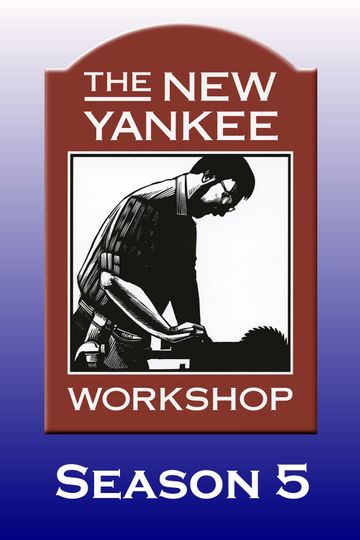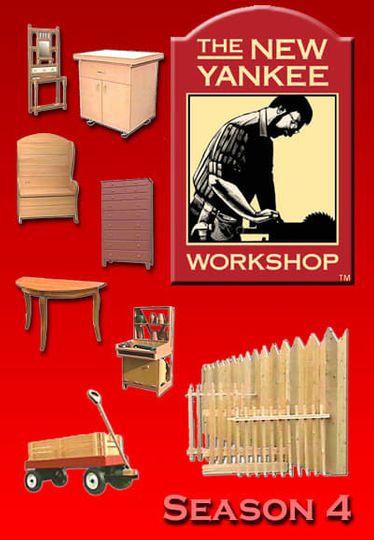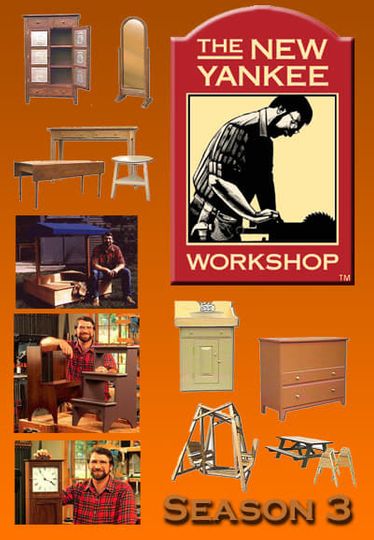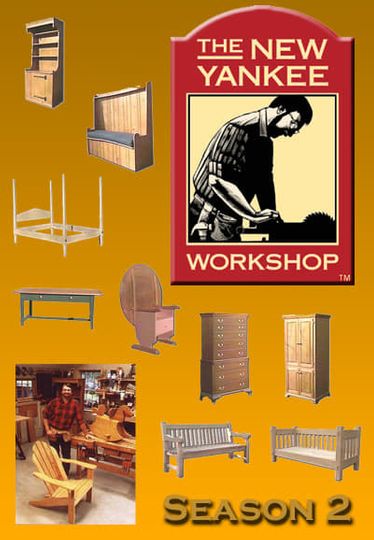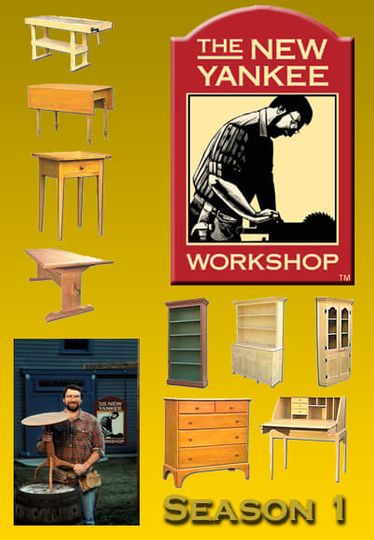Season 16 Plot
Norm builds a butterfly table, a Shaker bookcase, and a lowboy out of cherry, a folding screen and dining table out of mahogany, a flower stand and gardener's dry sink out of cypress, a tall case oak clock, a decoratively-painted dower chest, a fan back Windsor chair, a painted pier table, and an oak mission-style desk.
The New Yankee Workshop Season 16 aired on January 3rd, 2004.
Season 16 Episodes
1. The Butterfly Table
Norm revisits Old Sturbridge Village and discovers an old table built by a colonial furniture maker more than 200 years ago. The "Butterfly" table gets its name from the graceful drop leaves and the wing-like supports that hold the tabletop straight. This versatile table can also be used with the leaves dropped or even with just one lowered to allow placement next to a wall. The table is built of cherry, stained with a dark stain, and protected by a polyurethane finish.
2. The Folding Screen
The folding room screen is an attractive alternative to divide a room or to seal off an unwanted view of a computer, a TV set, or perhaps a heating radiator. This handsome three-fold hinged screen is built of traditional raised panels. Norm uses mahogany, which is stained to enhance the beautiful wood grain and then sealed with hard-wearing polyurethane.
3. The Flower Stand
The flower stand is a woodworker's interpretation of the flower vendor's classic three-tiered display shelf. Norm built his version with hard-wearing medium density overlay plywood, a material favored by highway sign makers, and edged with decay resistant cypress. A twocoat paint job results in a handsome "black/green" garden finish, perfect for displaying a varied collection of plants and flowers.
4. The Shaker Bookcase
This bookcase will surprise many fans because it is unlike most Shaker designs. Elder Green built the original unusual cupboard in 1898 to contain a particular selection of documents in the Shaker Community library in Sabbathday Lake, Maine. Green built his bookcase of butternut and walnut and included a complicated cornice, built of several mouldings. Norm revised the original, making it somewhat shorter and narrower and built his of cherry.
5. The Tall Case Oak Clock
From hobbyists building a clock out of a kit to professionals building one from scratch, clock building seems to be a popular woodworking pastime. Over the years, thousands of clocks have been made and a surprising number have survived. Nowhere is there a more interesting collection of old clocks than that of the National Watch and Clock Museum in Columbia, Pennsylvania. Norm pays a visit to their collection for ideas for his version of a grandfather's clock. Inspired, he combines an Arts & Crafts-style case and some delightful sounding chimes into what is sure to become a family heirloom.
6. The Dower Chest
Pennsylvania Dutch is an endearing style created by early furniture makers. Many pieces of this delightful furniture, painted with a colorful primitive design, can be found at the Winterthur estate, in Delaware, Henry DuPont's fabulous treasure house of American antiques. With curator Greg Landry, Norm tours the collection and finds an interesting dower chest dating back to 1840. Norm builds his own of tulip poplar and calls on a decorative painter to recreate typical Pennsylvania Dutch artwork.
7. The Windsor Chair (1)
The Lancaster County "Fan Back" Windsor chair is perhaps the most challenging woodworking project of the 16th season. Norm pays a visit to chair makers Bill and Sally Wallick in Wrightsville, Pennsylvania for some invaluable help in building his "Fan Back". Bill teaches Norm how to start with carving a seat, then turning the legs, then fitting the steam bent maple "crest" rail, and adding the delicate, but strong spindles. Then Sally Wallick takes over to show how she is able to add instant age to their new chairs, giving them a realistic patina of antiquity that will fool even an expert. This is part 1 of 2.
8. The Windsor Chair (2)
The Lancaster County "Fan Back" Windsor chair is perhaps the most challenging woodworking project of the 16th season. Norm pays a visit to chair makers Bill and Sally Wallick in Wrightsville, Pennsylvania for some invaluable help in building his "Fan Back". Bill teaches Norm how to start with carving a seat, then turning the legs, then fitting the steam bent maple "crest" rail, and adding the delicate, but strong spindles. Then Sally Wallick takes over to show how she is able to add instant age to their new chairs, giving them a realistic patina of antiquity that will fool even an expert. This is part 2 of 2.
9. The Lowboy
Lowboy's are similar to the lower case of a classic highboy. Sometimes called a dressing table, they often come with two small drawers, one slightly larger with carved decoration and one long thin drawer under the top. Norm finds an early version of this classic at the Concord Museum in Concord, MA. Norm decides to embellish his with "Ball & Claw" type legs he gets from a company in Vermont who specialize in period decorative legs for furniture makers. With factory made legs and a plan for a Chippendale Lowboy in mind, Norm builds his version of the antique classic from solid cherry and carves a distinctive shell for the middle drawer.
10. The Pier Table
A pier table is a small table that is meant to be located between two windows. Norm finds a beautiful example of one at GKS Bush Antiques on Nantucket, Massachusetts. Made of poplar and beautifully painted with classic designs and a faux marble top, the original is stunning. Norm builds a copy and has it painted to match the original.
11. The Dining Table
Norm visits an antique dealer who commissions reproduction English antique furniture for his shop on Nantucket, Massachusetts. At the shop Norm finds an extension table, which should be perfect for "dinner for 10 or more" and yet collapses down to 6 feet for non-feast days. Norm makes his own out of mahogany with an elegant two-leaved top that sits on a pair of Queen Anne period pedestals giving diners ample legroom under the table.
12. The Mission Style Desk
Prowling through an arts and crafts shop of highly collectable Stickley and other Mission style period furniture, Norm discovers a wonderful oak desk he hopes to use for a small computer. It is an original 1910 Oak Knee Hole Desk made by L&JG Stickley. Made of oak and finished in the appropriate color and glaze, Norm will be using this sturdy desk for his own home.
13. The Gardener's Dry Sink
Here is a place to organize your horticultural life. Meant to go outdoors or in, this hard working bench provides a place to work on plants, repot them, and to store the numerous items plant lovers use. It's built of cypress for resistance to decay and is finished with a dry sink lined with copper.


